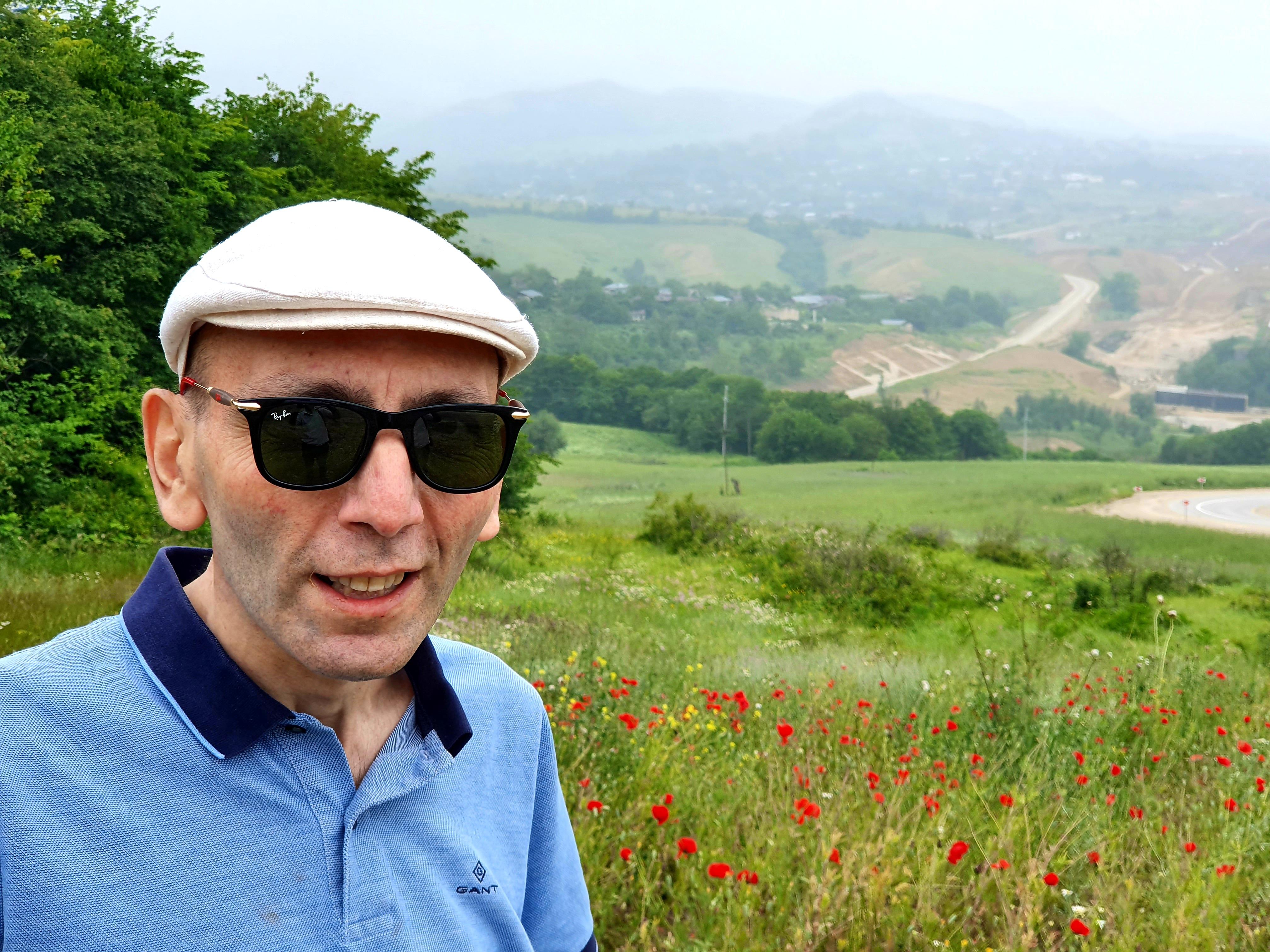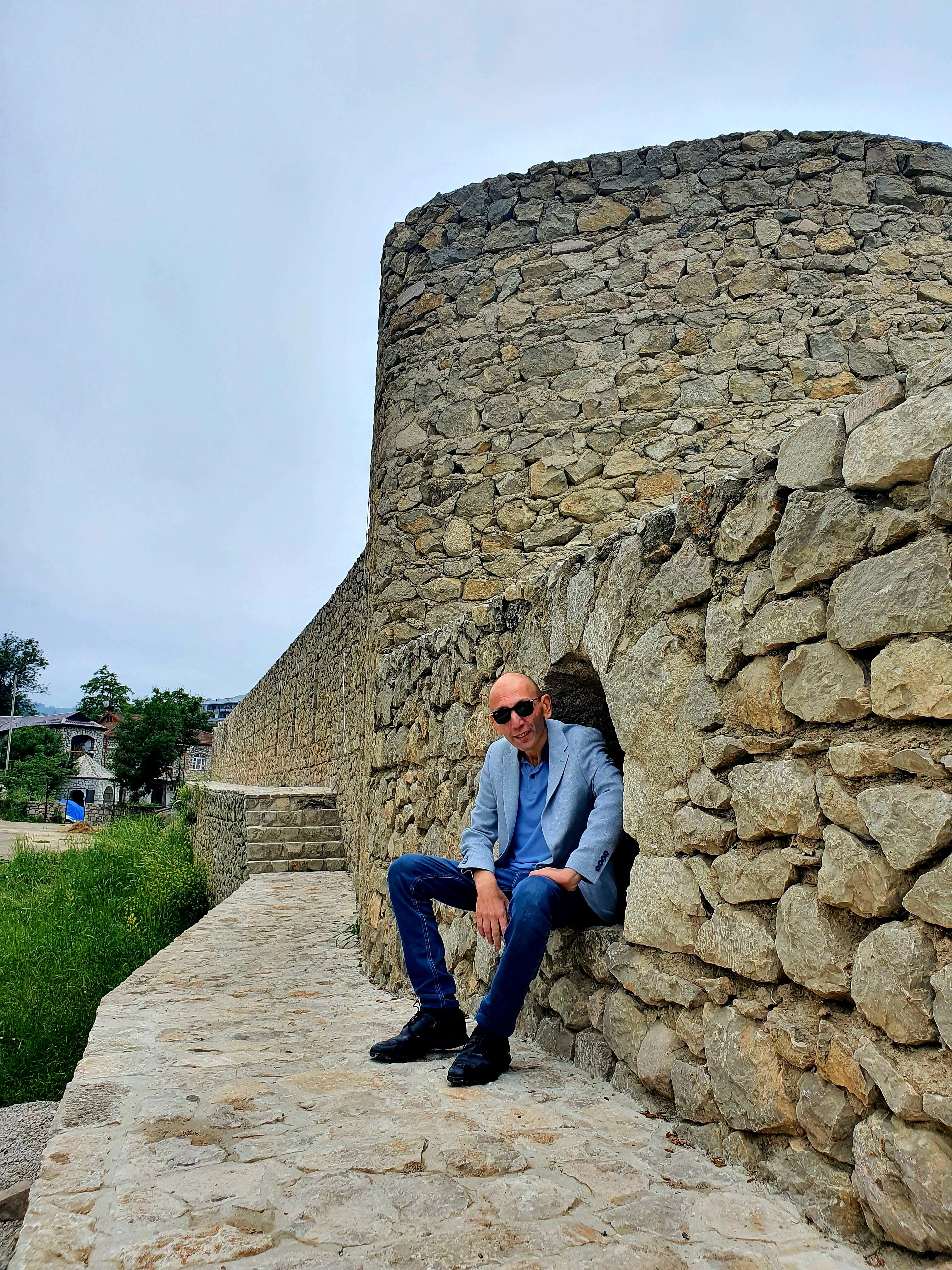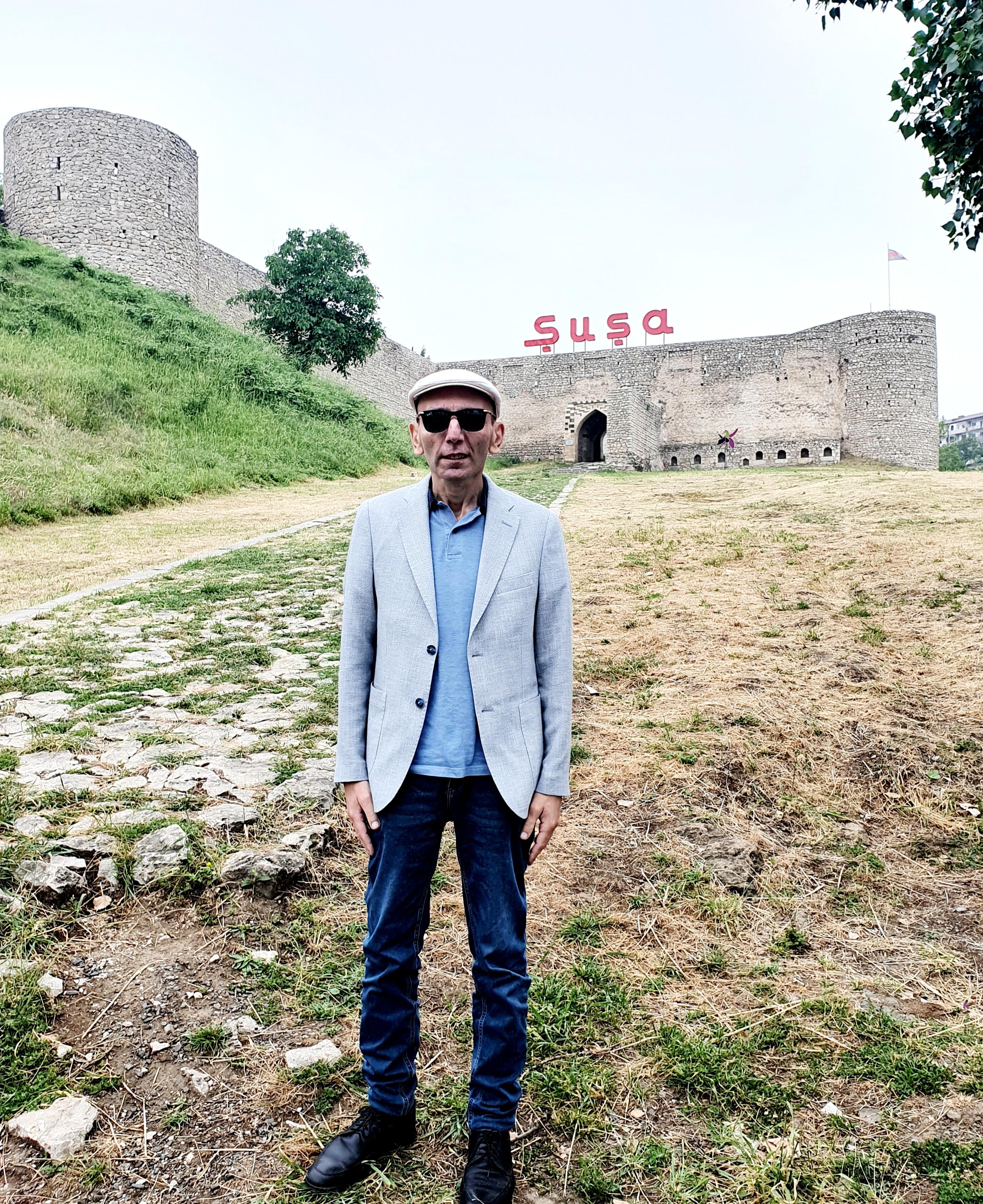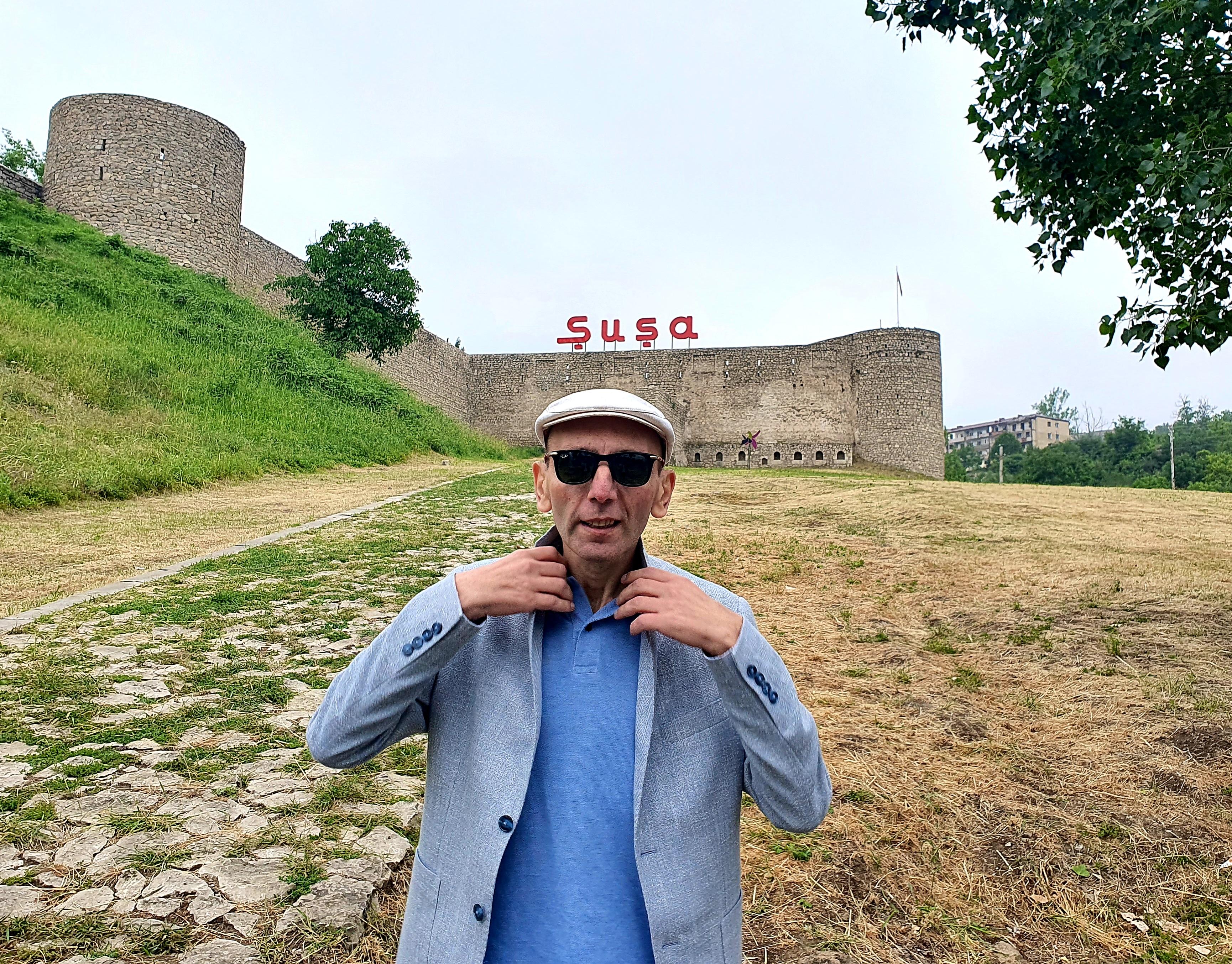Israeli expert: In Shusha I witnessed results of Armenian barbarism and vandalism
Over 400 diplomats, world leaders, Nobel Prize laureates, and others have gathered at the Baku Global Forum in recent days to discuss "Challenges to the Global World Order."
According to Azertag, this was reported in an interview with the Canadian-Israeli media platform Thej.ca by Arye Gut, executive director of the Israeli office of the Baku Center for Multiculturalism and the Azerbaijani House in Israel and an expert in international relations.

Israeli expert stressed that at the Baku Global Forum, President Ilham Aliyev said: "We choose peace because we want stable, sustainable development in the South Caucasus. This is a unique opportunity. The South Caucasus has fallen apart during the years of independence of the three South Caucasus countries. For thirty years it was destroyed because of the Armenian occupation. So now it is time to make peace, to establish cooperation with Armenia. And Azerbaijan is working on that. As for the process of normalization of relations with Armenia, we proposed, it was our proposal to start working on a peace agreement. Armenia did not respond."

Professor Arye Gut, who took an active part in the World Baku Forum, said that within the framework of the forum he visited the cultural capital of Azerbaijan, the city of Shusha.
"Thirty years ago with the support of 336th Russian regiment, Armenian troops managed to capture Shusha. As a result of the occupation of Shusha city and 30 villages in the Shusha region, 195 civilians were killed, 165 wounded, and 58 missing. Over 24,000 Shusha residents were ethnically cleansed. It should be noted that the Jewish hero of Azerbaijan Albert Agarunov was killed by Armenian snipers in the defence of Shusha.
Killed at the age of 23, Albert had a short but glorious and heroic life. He is loved and respected in Azerbaijan. He is a true hero and example of courage. Azerbaijanis will always honor his memory. A brave tank man, according to his friends, Albert Agarunov was devoted to his country and died defending the territorial integrity of Azerbaijan," stressed Arye Gut.

According to him, "it was a very interesting trip to admire and be truly proud of the beauty of the great Karabakh, and at the same time witness the Armenian horrors and destruction on the road leading to Shusha."
"We saw the terrible evidence of the suffering of the Azerbaijani people during the 30-year Armenian occupation. These mass destructions and burials are the results of barbarism and vandalism, ecocide and chauvinism, misanthropy, and the Armenian "scorched war" strategy implemented by the Armenian political regime during the 30-year occupation.
The "Pearl of Azerbaijan" has been under brutal Armenian occupation for almost 30 years. For Azerbaijanis, who are always proud that the brightest representatives of Azerbaijani art, culture, and music were born in Shusha, this connection has a special meaning. For many years Shusha was lonely and orphaned, tortured and mocked. Shusha definitely misses those old times, when the air was beautiful and enchanted by the aura of Azerbaijani Bayati Shiraz music.

In Soviet times Shusha was a resort. The transformation of Shusha from a battlefield to a tourist destination is part of Azerbaijan's important strategic plan to consolidate its irreversible power over the territories. Two years ago, official Baku regained the ancestral and historical Azerbaijani territories of Karabakh thanks to the courage and heroism of Azerbaijani soldiers and officers during the Second Karabakh War.
Karabakh and the seven surrounding districts, all internationally recognized as an original and integral part of Azerbaijan, had been under the strict occupation control of Armenia since the first Karabakh war in the early 1990s.

Now Azerbaijan seeks to reintegrate the territories by connecting them to its electricity grid and road network, making what has been achieved irreversible.
According to Azerbaijan's Foreign Ministry, some of the 750,000 Azerbaijanis displaced from Karabakh during the first war could return next year. Resettlement of Shusha residents may take a little longer. The president's representative in Shusha said it could take a year and a half for the residences to be ready to receive the returning residents, but it is expected that tourists will arrive as early as next year," Gut said.








